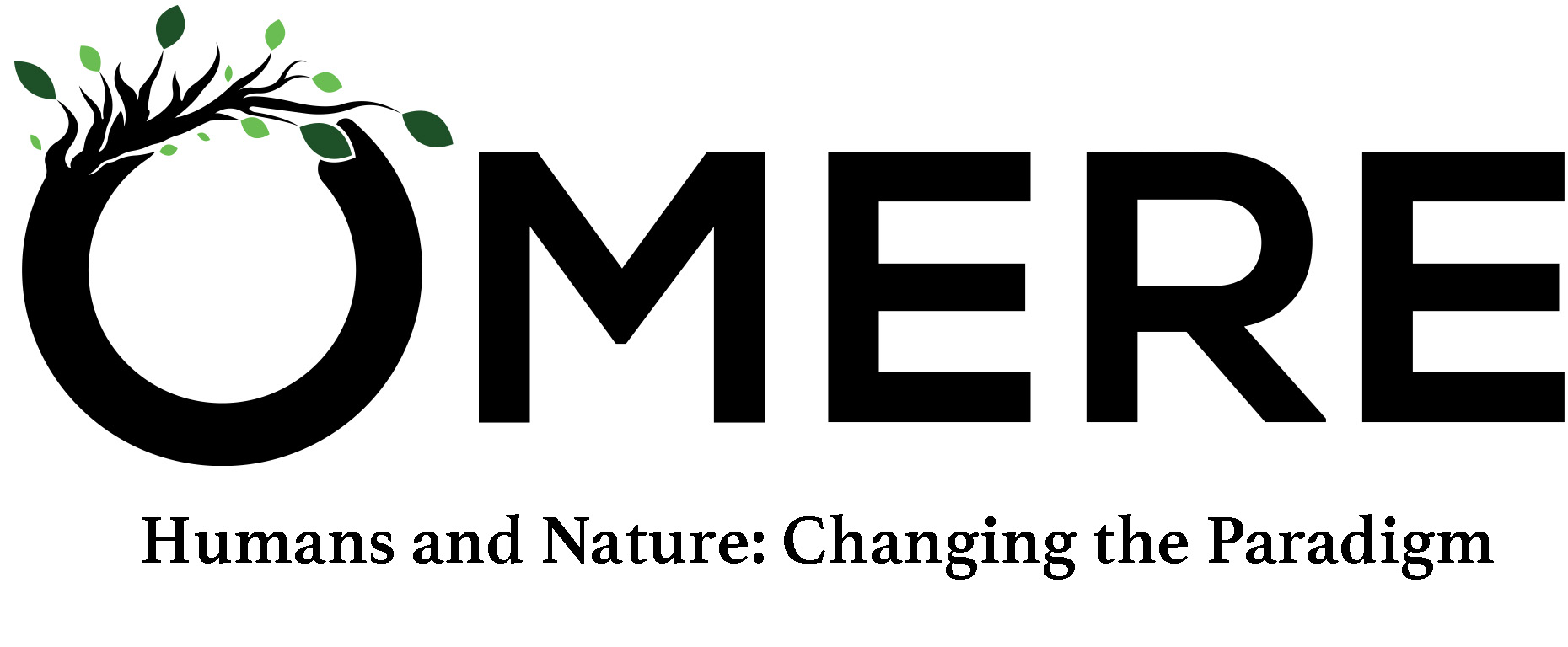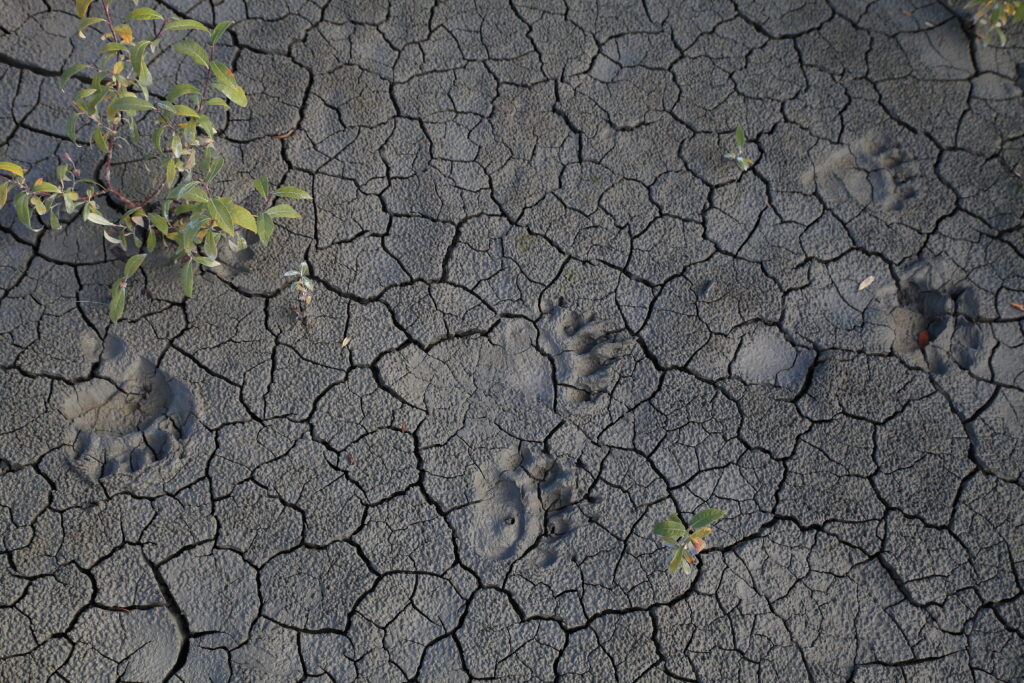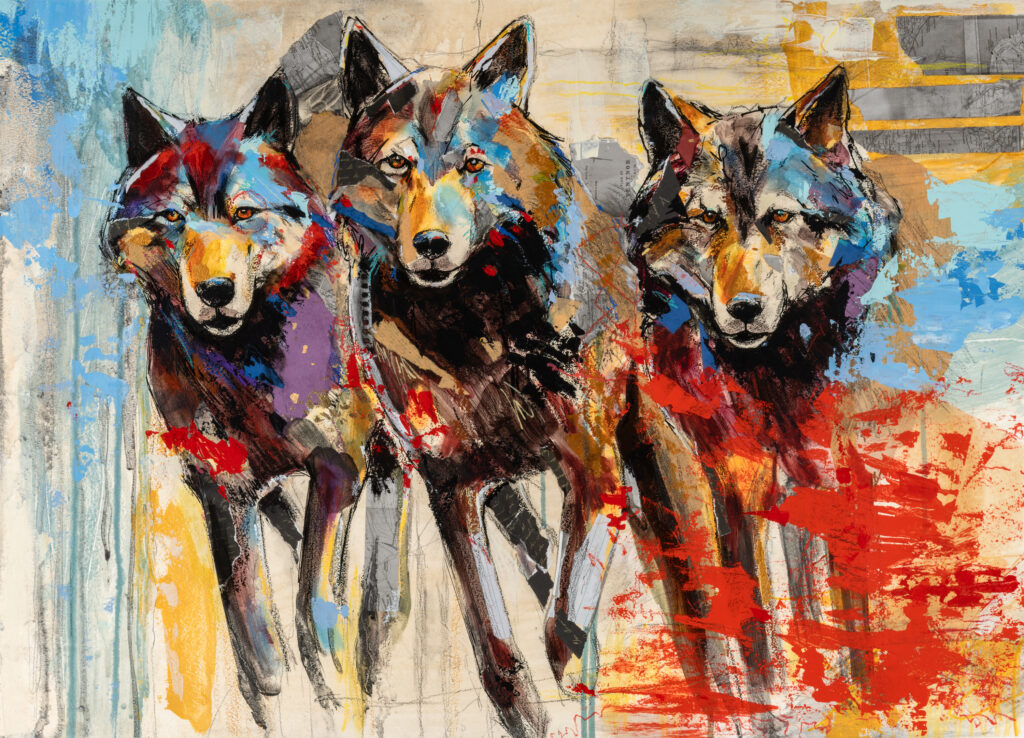Image Credit:Kevron on iStock
“The development ideologues do not hear the screaming of the buttressed trees or the wailing of the rivers or the weeping of the soils. They do not hear the sentiment agony and the anguish of the non-human multitudes — torn, shredded, crushed, incinerated, choked, dispossessed.” ~ John Livingston, Rogue Primate: An Exploration of Human Domestication.
A prosthesis is an artificial body part, such as a wooden leg. In this case, it compensates for a real thing made of muscles and bones, wrapped in protective but porous skin, and intricately netted with nerves sensitive to touch and veins pulsating with circulating life-giving blood. It also harbours our DNA and ends with toes carved with unique human prints. In a nutshell, our leg is us.
Since a real leg constitutes an unalienable part of the living body, having a prosthesis signifies a loss. Perhaps a real leg was surgically amputated or crushed in a car accident, or it might have been blown off in a senseless war. The origins of the loss differ, but one thing remains certain; the leg is gone. What was once natural has become artificial; what was once instinctively and organically merged with a human being has given way to an alien tool, an artifice.
And yet, the dissimilarity of provenance obscures the similarity of function. Whether it’s a real leg or a prosthesis, the fundamental purpose remains the same. By replacing the original limb, the artificial leg becomes an extension of the biological body, allowing the user to traverse physical space. It offers a gain after a loss as it re-establishes the link to the world that was tragically severed.
Among all living organisms, human beings stand out in their dependence on prostheses. An artificial leg is the most obvious example of this dependency, but the notion of prosthesis goes far beyond assistance with walking. As John Livingston argues in Rogue Primate: An Exploration of Human Domestication, we have traded our natural connection to the surrounding world for reliance on an endless array of prostheses, some tangible and some intellectual.
On our own volition, we have let go of the sensual richness offered by Nature…
The two words — amputation and dependency — are critical to understanding Livingston’s concept of a prosthesis. We, humans, have “amputated” our wildness and brought upon ourselves the same fate we have dealt our domesticated animals. Like them, we have grown dependent on prostheses offered by technology, manufactured tools and products, and a way of living that favours repetitiousness, tractability, and monotony. Moreover, unique among species, our domestication has not been coerced but self-imposed.
On our own volition, we have let go of the sensual richness offered by Nature and replaced it with an existence that has destined us to inhabit small, densely-populated enclosures, accept natural light deprivation, and depend on a deadening, time-dictated routine.
It’s quite an accomplishment. After all, enduring the limits of space and the unchangeability of surroundings with the patience of a defeated cow cannot be easy. It demands a dose of masochism and a significant degree of genetic predisposition. Obviously, we have both because we have succeeded. More than that. Not only have we managed to accomplish our own domestication, but we also take pride in it and glorify it as “the civilizing process.”
Resorting to technological prostheses might have freed us from natural limitations but also enslaved us to the inferior, surrogate mode of living.
Ironically, in the name of this civilizing process, we have conquered all regions of the world, often subjugating or annihilating indigenous populations, degraded our living conditions through overpopulation and ecological devastation, and possibly set ourselves on a suicidal path by exacerbating the severity of climate change. Quite a fate, indeed. Resorting to technological prostheses might have freed us from natural limitations but also enslaved us to the inferior, surrogate mode of living.

Image Credit: Pixabay
It didn’t happen all at once. With the invention of agriculture, the fear of the future was ingrained in us. It manifested in early farmers’ anxiousness about the weather’s impact on crops and land fecundity — a fear alien to hunters and gatherers subsisting on inexhaustible fruits of unmanaged, abundant Nature. Nowadays, the fear of the future rules omnipotent as we worry about job security, making mortgage payments, or having financial resources to ensure a decent old age.
Separating from Nature has also forced us to live under the tyranny of time. The natural world’s fluid, organic, in-the-moment existence is incomprehensible to modern man. Instead, we apprehend and interact with the external reality through prostheses of schedules, time-sensitive emergencies, and looming deadlines. The fear of the future and the tyranny of time have, in turn, deprived humans of the ability to exist fully in the present. It is the loss, Livingston argues, that comes with the maturation process.
In contrast to “a child gently holding an unfledged young robin that has fallen from its nest,” an adult version of this child no longer experiences “the sweet bondage of wildness.” Cloistered from the immediacy of wilderness, we become vulnerable to the vagaries of the alienated mind. Now and here give way to obsessing about the past or the future; the richness bestowed upon us by merging with Nature gets diluted by an intellectually distancing prosthesis.
A prosthesis can thus be both physical and immaterial, and they complement each other. Ideology, religion, and philosophy are meant to rationalize our actions as well as justify prosthetic tools and technologies that render these actions possible. And they reliably do. Despite their often-profound differences, most consequential intellectual and ideological prostheses advocate in unison for an instrumental rather than mutualistic relationship with Nature. Like an artificial leg, they connect and separate, allowing us to interact with the natural world but mediating this interaction through unnatural, alienating means.
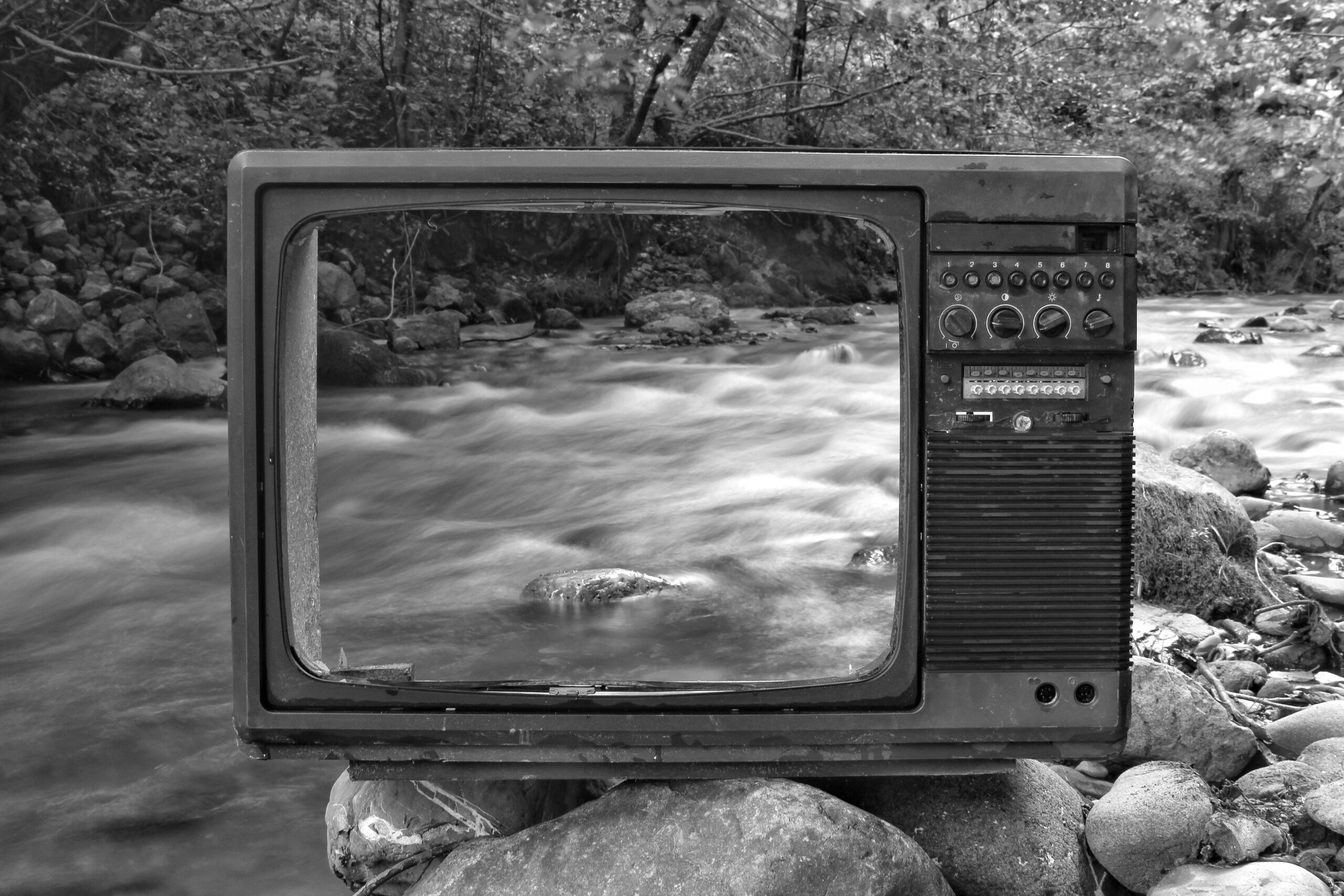
Image Credit:Maghradze on Pixels
R eligion clearly comes to mind. According to biblical teachings, harmoniousness, immersion, and benign mutuality need not have a place in man’s relations with the natural world. The child’s experience of “the sweet bondage of wildness” transforms into the bondage of Nature to the will of man. To aid our rapaciousness, the Christian religion gives humanity dominion over Nature and urges people to “replenish the earth, and subdue it.” Such prosthetic distancing elevates humans and separates them from the rest of the living world. Speciesism, the conviction of human superiority, attains a theological confirmation. In contrast to non-human Nature, people are believed to have been made in God’s image, which asserts their uniqueness and sanctions whatever fate they deem fit for all animals and plants.
If the Christian religion separated humanity from Nature, then Cartesian mind-body dualism and Bacon’s scientific methods — the two of them still operating within the landscape of religious epistemology — widened the gap. A prosthesis becomes even more alienating. At least within early Christian dogma, humans and Nature were reflections of God, though the former had dominion over the latter. Nature illuminated the thoughts of God and revealed His transcendent mysteries or hid them. Moreover, the biblical words alluded to stewardship and responsibility.
In the 17th century, a paradigm shift occurred under the influence of Descartes and Bacon. On one hand, God’s divinity still dominated and informed people’s lives, but on the other hand, Nature became demystified, stripped of spirituality, and reduced to a mechanism — a collection of empirical puzzles to be unravelled by the human mind. Any veneer of mysteriousness or ecological responsibility was dispensed with.
…the glorification of the human mind was achieved at the cost of denigrating and impoverishing nature.
Firstly, the Cartesian mind-body dualism differentiated between spirituality (God, angels) and the human mind on one side and the measurable world on the other. Instantly, therefore, humans were placed outside of Nature. It was no longer the body and its physiological processes — which we share with the rest of the animal world — that defined the human being, but instead, the supposed uniqueness of human consciousness. Consequently, the glorification of the human mind was achieved at the cost of denigrating and impoverishing nature. As James Barnes writes, “Nature was thereby drained of her inner life, rendered a deaf and blind apparatus of indifferent and value-free law, and humankind was faced with a world of inanimate, meaningless matter, upon which it projected its psyche — its aliveness, meaning and purpose — only in fantasy.”
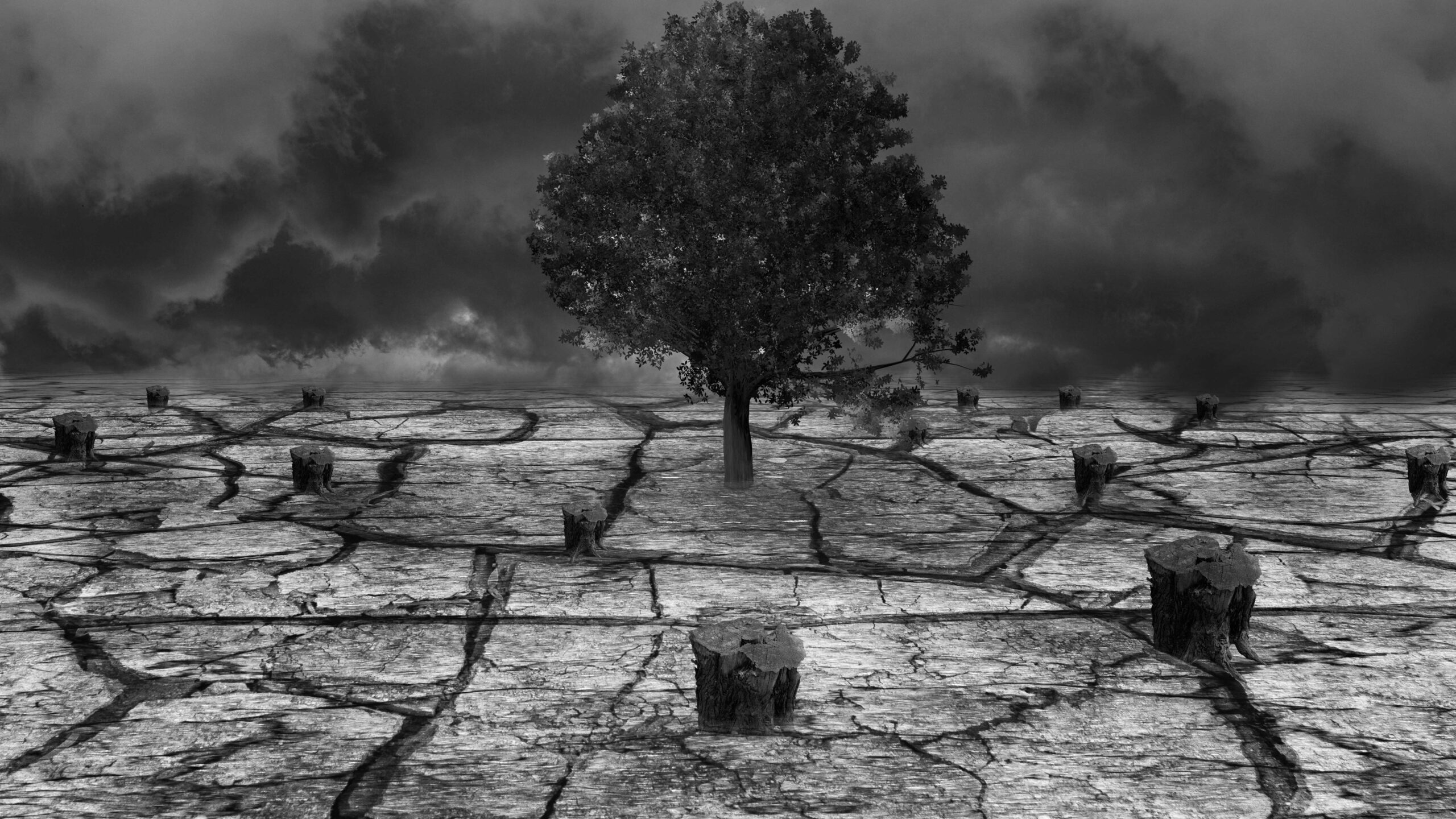
Image Credit:Kalhh on Pixabay
Francis Bacon took the distinction even further. Inheriting the notion of the measurable, non-human natural world from Descartes, he added a torturer-victim relationship to it. In effect, not only was humankind separated from Nature, but the two were now engaged in an adversarial battle. The enslavement of “the other” becomes human destiny. Our mission. The natural world hides treasures that can benefit humanity, and it is man’s duty to obtain them by any means necessary. Interestingly, an ironic inconsistency runs beneath this heartless attempt to objectify and subjugate Nature. Although, like Descartes, Bacon viewed Nature as unemotional, inanimate matter, he depicted its exploitation in anthropological terms. Man can brutalize Nature, he writes, because “torture may compel an unwilling witness to reveal what he has been concealing.”
Nature does not fare much better under the theory of evolution. Livingston argues that Darwinism gave rise to yet another pernicious intellectual prosthesis. What’s more, this time, wilderness provides a rationale for its own mistreatment. The idea of competition and “the survival of the fittest” that underpins Darwin’s view of the evolutionary process fits perfectly as an intellectual template for the capitalist economic model. It establishes the rules of the game and lends ultimate credibility and authority to these rules. What emerges is the belief that “competition is natural and good, and winning is even better.”
Seen through the prism of Darwinism, capitalism’s dog-eat-dog dogma is no longer just one way to organize society. Instead, it is the only way because Nature itself provides us with guidance, thus rendering unregulated capitalism a natural manifestation of socioeconomic life. Even the destruction of Nature, its subjugation and exploitation, gets justified. It results from the fierce and ruthless competition to succeed at whatever cost, a zero-sum game that originates from all species’ evolutionary survival battle.
Isthis how it works, however? Does the animal world exemplify fighting and aggressiveness as Modus Operandi? Not really, as Livingston proves by listing examples that make one question the predominance of selfish competition in Nature. Indeed, his fair-minded observations, unshackled from the default tendency for prejudgment and superficiality, shed illuminating insights. For instance, what appears to be “a pecking order” or an Alpha male’s display of dominance might reflect the most convenient social arrangements for all group members. It’s reasonable to believe that none of the individual animals feel dominant or submissive but instead comfortable with their position and function within a group.
And yet, this is not what stays in the public mind. This is not the message the theory of evolution has encoded in most of us. On the contrary, Livingston writes, scientific writing about animal relations abounds with “words such as ‘aggression,’ ‘competition,’ ‘dominance’ and ‘submission,’ ‘hierarchy,’ and, of course, ‘territoriality.’” The natural world is still being interpreted as a fierce, winner-takes-all battleground and the behavioural archetype for human society to follow, truth be damned.
Moreover, since the evolutionary process credits successful survival with constant improvements to better fit the environment, the notion of progress gets sanctified. In Charles Darwin’s own words, “the more recent forms must, on my theory, be higher than the more ancient.” Therefore, Livingston notices, by extrapolating from Nature to society at large, “the common thread is the presumed universality of progress necessarily arising from superiority in a competitive struggle.”
Ironically, the mantra of progress embedded in the evolutionary process makes Nature a mouthpiece for its exploitation and abuse. It’s all good, the message goes, since destruction foreshadows rebirth; a snake eats its own tail. Any interference with Nature in the name of progress can thus count on supportive, self-evident rationale. Adhering to such an ideological prosthesis also reinforces human alienation from Nature because it extends the cultural tradition of perceiving wilderness as a means to an end rather than an end in itself. Only humanity, as argued earlier by Immanuel Kant, has a value not conditioned by anything else.
But there is more to it, of course. Growth — progress’s inalienable companion and, at times, its synonym — offers yet another ideological prosthesis for our relations with Nature. Its beneficence is again argued to be evident. Growth is good because it, well, leads to growth. On this point, all dominant ideologies concur. As Livingston writes, “both right and left subscribe to and are subsumed by the greater ideology of the industrial-growth ethos.” Their differences lie in what is perceived to be good for humans, not Nature.
Therefore, like another influential Canadian thinker, David Orton, Livingston always believed that industrialization, rather than a particular socioeconomic system, was at the root of ecological destruction. He already expressed this view in the early 1970s in One Cosmic Instant: Man’s Fleeting Supremacy: “From the conservationist’s point of view, there is no shred of difference between capitalist and socialist societies so long as both stand for inordinate industrial growth and productivity. Industrialization at an increasing rate is the goal of all the super-powers and their satellites today, and industrialization (including growth in both production and consumption) is the grail of all forms of government in the developed world.”
Nature’s otherness — its amputation from our collective concept of self — diminishes compassion and hinders empathy.
Capitalism — in its American and European incarnations — socialism, communist as well as autocratic, theocratic, and military regimes that mix mainstream economic models with plutocracy and corruption, all champion growth as a constant, unquestionable goal. No disagreement here. On the promise to foster growth, we expand deforestation, drive species to extinction, and pollute the oceans. Nature’s otherness — its amputation from our collective concept of self — diminishes compassion and hinders empathy.
As in the case of a man with an artificial leg walking through the same forest he used to traverse barefooted, an ideological prosthesis of progress and growth allows us to interact with Nature, but the feeling is gone.
Even conservation reveals our detachment. Severing our primal connection to Nature and, instead, incorporating the natural world into the realm of profit-making to enhance growth and innovation has predetermined our efforts to protect it. Conservation scientists argue that wild forests and oceans deserve protection because they provide immense economic benefits for humanity. In other words, solely their contribution to innovation and growth justifies their existence. Consequently, various methods for the economic valuation of ecosystem services— be it ten trillion dollars or more — are put forward as the most effective ways to ensure the preservation of Nature for future generations.

Image Credit:Silvana Palacios on Pexels
Money, profit, resources, speciesism. The human-centric argumentation couldn’t be more unambiguously emphasized. Not only is conservation economically beneficial for currently living humans, but it can also bear fruit for generations to come. Therefore, anthropocentrism rather than biocentrism prevails, regardless of whether our goals are benevolent or rapacious. As always, John Livingston expresses it best: “The overwhelming thrust of the environmental movement is dedicated not to the interest of Nature, but to the security and sustainability of the advancement of the human enterprise.” The ideological prosthesis that cut us adrift from the natural world looms over everything. It permeates everything.
Itneed not be like that; it should not be like that. Defending Nature from the position of its utility for human affairs differs from its exploitation only in the overall intention, not conceptualization. In both cases, the intrinsic value of Nature becomes secondary. It remains defined as “the other” whose purpose is to improve the life of humans who represent the only conscious “self.” Unsurprisingly, therefore, the concept of “selfhood” is prominent in Livingston’s writing. He identifies the division between human beings and the rest of Nature as an overarching prosthesis containing all other ideological and technological prostheses within itself.
We can only “save” or “protect” wilderness if we see it as a natural, organic extension of ourselves.
It is this division which signifies the original “amputation.” The notion of self, he writes, “is an expression of dualism. It dichotomizes our world by requiring the additional concept of the other.” It is, of course, a consequential dichotomy; it justifies the exploitation of Nature and ultimately dooms its conservation. Although the former is malignant and the latter intentionally benign, their prosthetic ideologies share the belief in “the otherness” of Nature. Here lies “the fallacy of wildlife conservation” — the title of Livingston’s earlier book.
We can only “save” or “protect” wilderness if we see it as a natural, organic extension of ourselves. It needs to become as precious to us as our own leg made of bones and muscles, its intrinsic irreplaceability contrasting with the functional utility of a leg prosthesis.
As Livingston states in The Fallacy of Wildlife Conservation, “All that is in my universe is not merely mine, it is me.” It’s a challenging way of apprehending Nature. Idealistic, some would say. And yet, the challenge, which embracing this vision poses, does not invalidate or lessen its indispensability. Only by extending our concept of self to the world around us can we save them both. Ironically, we can save them because there is no “both” but one and the same.
John Livingston knew it, and most of us know it, too, even if we forget it in our journey toward adulthood. Holding on to this knowledge, to this feeling, makes all the difference. It is, Livingston writes in Rogue Primate, the key to our existence: “For the child who has bonded with and thus become non-human Nature, and who retains the capacity to retrieve that self-identity through adulthood, the willful, deliberate, and conscious wounding of Nature is impossible, because that would be self-mutilation.”
